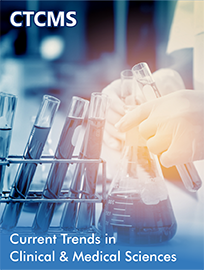 Research Article
Research Article
Targeting Clostridioides difficile Infection-Induced Inflammation to Improve Treatment Outcome
Department of Comparative Pathobiology, College of Veterinary Medicine, Purdue University, West Lafayette, IN 47907, USA
Sanjeev K Narayanan, BVSc, PhD, Department of Comparative Pathobiology Purdue University College of Veterinary Medicine, USA.
Received Date:June 30, 2022; Published Date: July 14, 2022
Abstract
Clostridioides difficile infection (CDI) is a worldwide concern. The increase in cases numbers and disease severity and mortality combined with the scarcity of effective antibiotics warrant intensive research for alternative strategies to combat this disease. Although CDI is inflammatory disease in nature, antiinflammatory agents are not recommended for the management of the symptoms. Further, some antiinflammatory drugs are considered predisposing factors for severe CDI and poor prognosis. On the other hand, several studies have demonstrated the benefit of curbing the inflammation in the management of CDI in both humans and experimental animals. Since CDI is a multifactorial disease that depends on host immunity, gut microbiota and bacterial virulence, a thorough investigation is required to assess the value of using antiinflammatory agents in the treatment of the infection. The current article highlights the conflicting evidence of using antiinflammatory agents during CDI and calls for in-depth research to evaluate their use in controlling CDI.
Keywords: Clostridiodes difficile Infection (CDI); Inflammation; Anti inflammatory; NSAIDs, Corticosteroids
Abbreviations:CDI: Clostridioides difficile infection; C. difficile: Clostridioides difficile; TNF: Tumor necrosis factor; IL-8: Interleukin-8; NF-κB:nuclear factor-κB; AP-1: activator protein-1; NSAIDs: non-steroidal antiinflammatory drugs; TcdA: C. difficile toxin A; TcdB: C. difficile toxin
-
Ahmed AbdelKhalek, Sanjeev K Narayanan. Targeting Clostridioides difficile Infection-Induced Inflammation to Improve Treatment Outcome. Curr Tr Clin & Med Sci. 3(2): 2022. CTCMS.MS.ID.000559.





